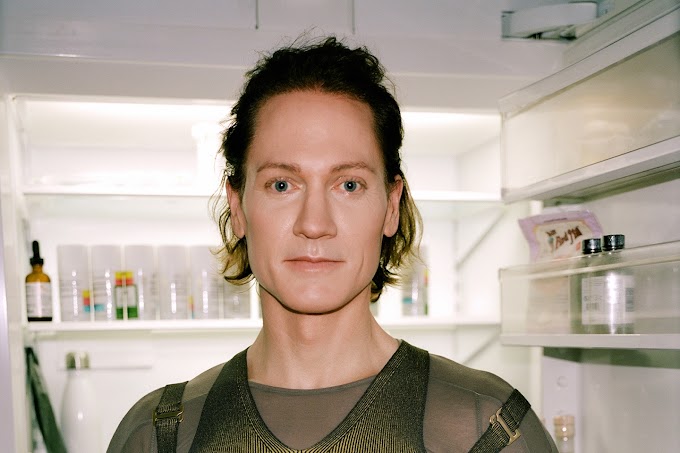In intensely rare cases, a woman can get pregnant while already pregnant. In normal, ovaries of a pregnant woman temporarily stop releasing eggs. But in an uncommon phenomenon known as superfetation, another egg is released, gets fertilized with sperm, and attaches to the wall of the uterus, resulting in two babies.
What is superfetation?
In superfetation, a foetus is conceived few days or few weeks after one has already been conceived. This phenomenon is more likely to found in the animal kingdom. Since humans are mammals, this condition is technically also possible in humans. It happened to Jessica Allen in 2016.
One foetus is gestationally older than the other, but the babies will share a birthday. Doctors will have to induce labour for the younger sibling or deliver the babies via c-section. In some cases, the older one will even be much bigger than the younger twin because they have had more time to grow and develop in the uterus.
Cases of Superfetation:
In 2016, California mom Jessica Allen agreed to be a surrogate for another couple because she wanted to help them experience the joy of parenthood. After six months, she got some shocking news from her doctor that She was carrying two babies.
Later, DNA tests revealed that wasn't true at all. The second baby was the real biological child of Allen and her husband. They had conceived the second baby naturally, even though she was already carrying a baby as a surrogate.
Simply, she got pregnant while she was already carrying a baby.
Simply, she got pregnant while she was already carrying a baby.
Scientists are still researching that is it physically possible in humans beings - like other mammals. for that they believe that falling pregnant while you're already pregnant could be due to another medical condition which remained unexplained, today. Only 10 cases have been reported in the United States.
Allen and her husband achieve full custody of their biological son, who's now 10 months old. But their story has drew the attention to incredibly rare or uncommon phenomenon known as superfetation. As mentioned above, it's common in other mammals. but it's only been reported a handful of times in humans, as per the reports of the New York Times.
Normally, when woman gets pregnant, hormonal changes temporarily stop her ovaries from releasing more eggs blocks ovulation. The lining of the uterus also becomes much thicker, making it more difficult for another fertilized egg to attach, if one happened to wander down that far. Finally, a plug made of mucus forms in the cervix to prevent sperm from swimming up into the uterus, according to Scientific American.
But in a few out-there cases — including Allen's — those automatic defenses don't appear to have worked. In 2007, for example, one British woman gave birth to a boy and a girl conceived three weeks apart, according to TIME.
ABCnews leader clinical contributor Dr. Jennifer Ashton advised that we nonetheless don't know precisely why superfetation happens .So far, case reports indicate that the second pregnancy tends to happen roughly two to four weeks after the first one. And since the babies are so close in age, a mom who experiences superfetation faces similar risks to a mom expecting multiples: A higher risk of preterm birth, high blood pressure, and preeclampsia.
most importantly , she burdened that superfetation is absolutely rare . As she said on the show: "I want people to know that you have a better chance of being struck by lightning or winning the lottery than having this happen to you, if you're a woman with a uterus.
For Superfetation to Happen, the Following Things Needs to Occur:
Allen and her husband achieve full custody of their biological son, who's now 10 months old. But their story has drew the attention to incredibly rare or uncommon phenomenon known as superfetation. As mentioned above, it's common in other mammals. but it's only been reported a handful of times in humans, as per the reports of the New York Times.
Normally, when woman gets pregnant, hormonal changes temporarily stop her ovaries from releasing more eggs blocks ovulation. The lining of the uterus also becomes much thicker, making it more difficult for another fertilized egg to attach, if one happened to wander down that far. Finally, a plug made of mucus forms in the cervix to prevent sperm from swimming up into the uterus, according to Scientific American.
But in a few out-there cases — including Allen's — those automatic defenses don't appear to have worked. In 2007, for example, one British woman gave birth to a boy and a girl conceived three weeks apart, according to TIME.
ABC
For Superfetation to Happen, the Following Things Needs to Occur:
- Ovulation must take place during pregnancy (which is rare or unlikely to happen).
- Ejaculate must be able to penetrate through the mucus lining (again, its not likely to happen)
- Fertilisation need to occur in an already occupied uterus.
- Reports of superfetation in humans are more likely to be associated with women who've undergone fertility treatment.









0 Comments